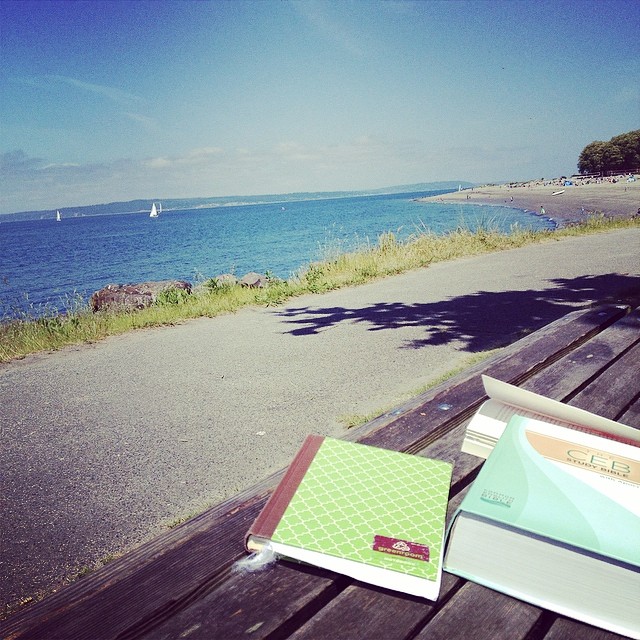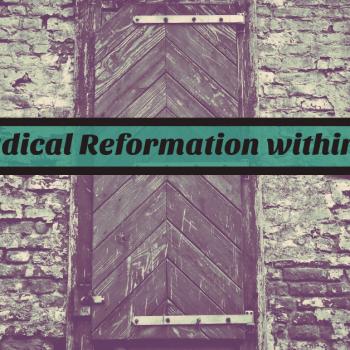Many of you know that a few months ago I had the unique opportunity to visit the Holy Land with The Global Immersion Project a few months ago. We went with the intentional posture of learners, hearing stories and strategies from wonderful grassroots peacemakers (both Israeli and Palestinian). One of the things that impressed me more than anything else was the posture of Muslim Palestinians towards Americans in their midst.
No other culture practices hospitality like Arab culture. In a lot of ways, they could teach us Western Christians a lot about what it looks like to love your neighbor.
Another thing I learned on this trip was that Palestinian folks love to casually smoke hookah. If you’ve never heard of hookah, it’s typically a fruit-flavored tobacco. For those of you who smoke the occasional cigar, this might be an enjoyable pastime. For those of you who have never smoked anything in your life, it probably won’t interest you 🙂
On Sunday, I was at our local beach. This is one of the spots I enjoy going to connect with God. On this particular day I had planned to engage in a spiritual experiment that our faith community was doing together for the week. About five minutes into my exercise, I felt an odd nudge.
Backstory
Ever since my experience in the Middle East with The Global Immersion Project, one of the things that I’ve been praying for opportunities to engage with my Arab neighbors. It seems to me that since 9/11 we white Americans have marginalized an entire people group. As followers of Jesus we are invited into reconciliation, and it seems to me that this is one of the areas that Christians ought to be pursuing: loving our Muslim neighbors.
To be clear, loving our Muslim neighbors doesn’t mean attempting to convert them.* Loving our Muslim neighbors doesn’t mean engaging in conversation with an underlying agenda. Loving our Muslim neighbors doesn’t mean arguing theology with them so we feel dominant in our own religiosity. Loving our Muslim neighbors doesn’t mean that we demonize them and mischaracterize their faith by calling it inherently violent or evil.
Loving our Muslim neighbors means allowing them to shape us as much as we shape them. Loving our Muslim neighbors means entrusting them to God and not our own cunning evangelistic methods. Loving our Muslim neighbors means naming our common ground, specifically that Abraham is the father of both of us. Loving our Muslim neighbors means that we learn how to follow Jesus by appreciating the piety with which they follow the Quran.** Loving our Muslim neighbors might even mean smoking hookah with them.
A Nudge to Love My Muslim Neighbors
As I was sitting on a bench at the beach contemplating my life with God, I sensed a gentle nudge. A couple hundred feet to my left I noticed to Arab gentleman smoking hookah and preparing for a barbecue. For whatever reason I decided to get up and talk with them.
I learned that they are not from America but have traveled here to learn English and attend a university in Seattle. I told them that I had experienced to God in Palestine and shared with them about how much I appreciated Arab culture. Within minutes you were enjoying the hookah together along with Arab coffee, conversing through a difficult language gap.
By the end of our time together, after learning that one of the guys actually lived in Mecca, we exchanged phone numbers. The hope is that will get our families together. Having friends like us helps them with their English. And having friends like them helps me learn more about their culture, and helps put human faces on a religion that has been demonized by the religious right for the last decade.
Other Religions and No Strings
I don’t have all the answers for how religions ought to relate to each other. I believe in the uniqueness of Jesus Christ. Jesus is not a way to God but the way to God. But with that said, while retaining a uniquely Christian identity, I think there is something beautiful about many of the other religions our world has produced. Genuine people devoutly seeking a higher power – this is something to appreciate even if we think they are pursuing God in a limited way.
In the case of Islam, our commonalities might be closer than any other religious pairing (they accept Jesus as genuinely from God). So I’m convinced that we are not enemies, but distant cousins longing to be reconciled. This doesn’t mean all of our differences should be glossed over or compromised, but rather that we can learn to love each other with no strings attached. How else will they know just how much Jesus actually loves them?
Reconciliation is the center of the Gospel of Jesus. Jesus invites us to be reconciled to God. Jesus reconciles people into community. Jesus is reconciling the whole cosmos back to God. Jesus invites us to love our enemies toward reconciliation of relationship. Where there’s friction, especially the kind that people ignorantly label as “Christian,” we’re called to see the humanity in the other. As our so-called enemies are humanized, they become more than enemies, and perhaps even friends. We Christians have done a poor job, on the whole, of loving our Muslim neighbors. Perhaps you will sense a nudge to be part of a changing tide of love.
PS: Resources I’m Looking At
Here’s some of the books and resources I’m starting to utilize (slowly):
- Ongoing dialogue with The Global Immersion Project. We didn’t just go on a trip and say goodbye, we are all as a team still processing together! Can’t recommend them enough.
- Why Did Jesus, Moses, the Buddha, and Mohammed Cross the Road: Christian Identity in a Multi-Faith World, by Brian McLaren
- Allah: A Christian Response, by Miroslav Volf
- Journey Through the Storm: Musalaha and the Reconciliation Process, By Salim J. Munayer
- A Common Word: Muslims and Christians on Loving God and Neighbor, edited by Miroslav Volf, Ghazi bin Muhammad, and Melissa Yarrington.
- No god but God: The Origins, Evolution, and Future of Islam, by Reza Aslan
- Abrahamic Alliance International: Loving Muslim Neighbors videos
——————————————————————————————————————
Footnotes
* TO BE CLEAR: I don’t try to “convert” anyone. Someone else’s choice to follow Jesus isn’t my choice to make. Sure, if through our friendship they want to know more about Jesus… I’m ALL for that. But, this shouldn’t be the primary motivation for ANY relationship. We should love people because they are human image-bearers, without coercion.
** Here, of course, I don’t mean those few that would use their holy book to justify violence. That same note applies to the way many Christians read their holy book.













